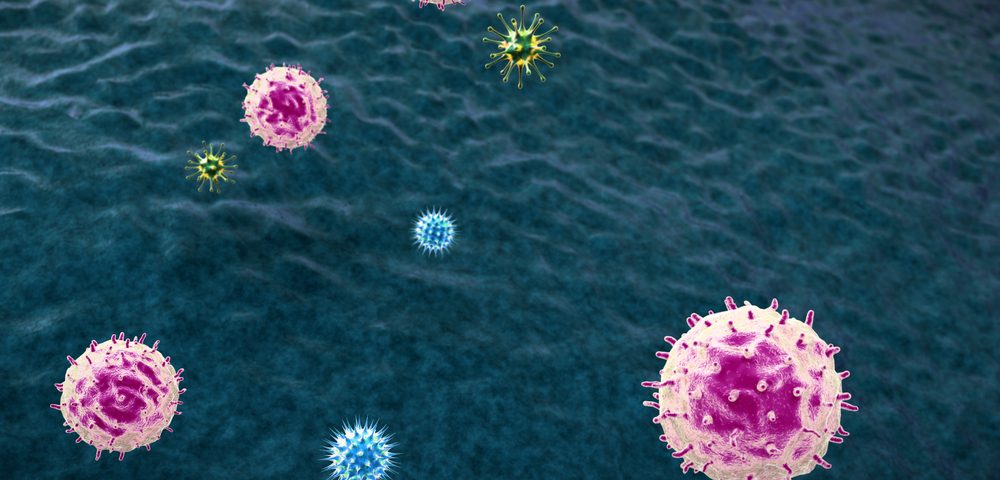A novel cellular immunotherapy in which patients’ T cells are engineered to express the chimeric antigen receptor (CAR) for CD19, a cell surface protein expressed on lymphoma cells, is being studied in a Phase 2 trial for patients with aggressive non-Hodgkin’s lymphoma, who failed standard therapy.
Non-Hodgkin’s lymphoma is blood cancer that affects over 70,000 new patients every year in the U.S. Although the vast number of patients with non-Hodgkin’s lymphoma are treated using standard chemotherapy, some patients fail treatment and require other options, such as immunotherapy with CAR T cells.
“CAR-T cells represent a remarkable new way of harnessing the immune system and redirecting it to destroy cancer cells,” Lazaros J. Lekakis, MD, a hematologic oncologist at Sylvester Comprehensive Cancer Center at the University of Miami Miller School of Medicine, and principal investigator for the trial, said in a press release. “In this trial, Kite Pharma, the sponsor of the study, genetically engineers the patient’s own T cells, an important component of the immune system, to recognize lymphoma cells and attack them in a way that mimics the way the immune system fights serious infections.”
The trial is being conducted at Sylvester Comprehensive Cancer Center, the first cancer center in South Florida to treat patients with this approach, known as KTE-C19. It relies on the collection of the patients’ own T cells from the blood, which are posteriorly engineered by Kite Pharma‘s researchers to express a chimeric receptor that allows T cells to recognize a specific antigen (CD19) commonly found on lymphoma cells. The genetically engineered cells, CAR T cells, which have the ability to target lymphoma cells, are then transfused back to the patients.
“Our first CAR-T cell patients had an aggressive form of diffuse large B-cell lymphoma, having failed multiple lines of standard chemotherapy,” said Joseph Rosenblatt, MD, chief of the division of hematology at Sylvester. “Our patients were very brave in seeking this investigational therapy, and so far we are very encouraged by the preliminary response to the therapy.”
“We are thrilled to bring novel and extremely promising trials of CAR-T cell therapies to patients in South Florida,” said Krishna V. Komanduri, MD, director of the Adult Stem Cell Transplant Program at Sylvester. “While we have known for some time that T cells from stem cell transplant donors can cure blood cancers that fail chemotherapy, the ability to induce remissions using genetically engineered T cells from patients represents a true therapeutic breakthrough.”


